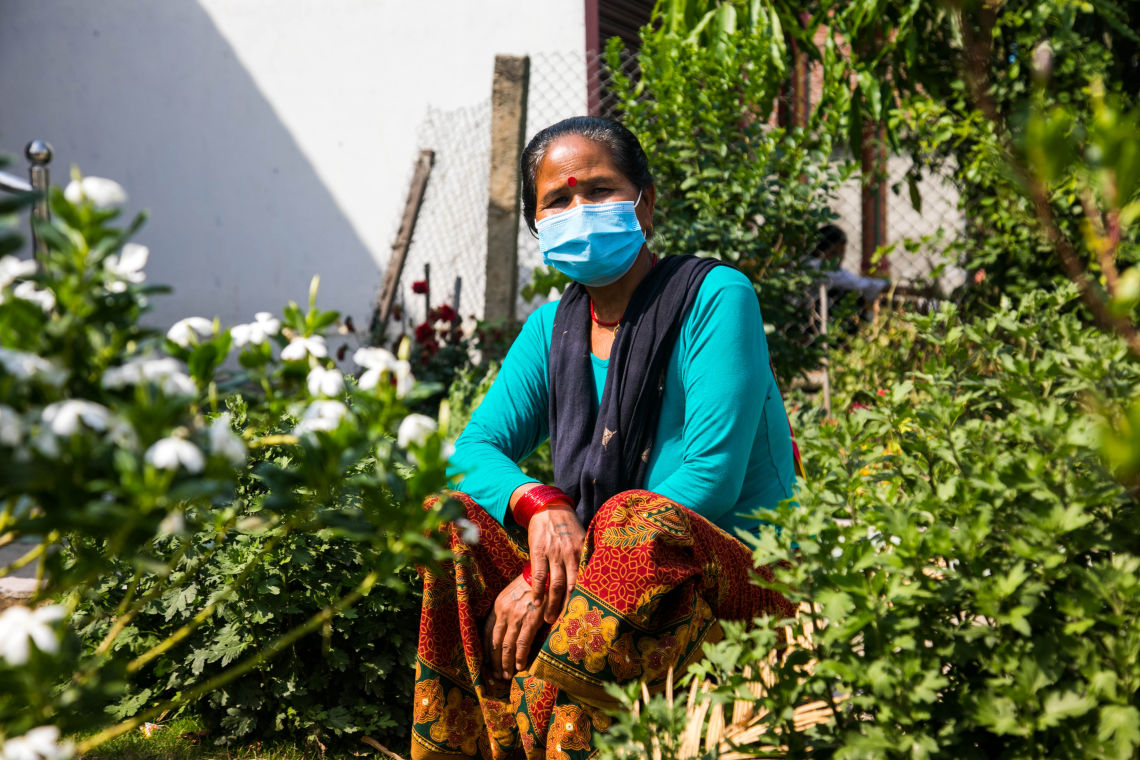She is a member of Caritas’ Integrated Pest Management (IPM) program, and recently got involved as a member in Homestay project too. Fortunately she is also the member of Navjyoti cooperative (nun by Catholic nuns) since 2009-10. Cooperative supported economically disadvantaged women like her and IPM empowered small holder farmers with technical farming trainings. “The land which was insufficient before but now it’s more than enough after IPM training”, she reveals. Trainings and agro-input support from Caritas enabled these farmers to earn decent income to support their family. At present she grows organic vegetables, raises pigs and goats and saves Rs. 500 per month in cooperative like her other cooperative members. Also she is able to educate her son; he studies in grade 12 in a reputed college of Surkhet. She sells organic vegetables to a nearby orphanage (Kopila Valley School) in higher price adding extra income. Organic vegetables have high market value and increasing demand therefore, she utilizes IPM technique avoiding harsh chemicals and fertilizers in her vegetables.
Homestay project’s concept at first was unclear to her. She and other community people were unwilling to allow strangers (guests) in their house. Also they were uncomfortable thinking guests from big cities would not adjust in their tiny little village houses. It was then CN oriented about the objective/ goal of the project, after which 10 Tharu/ Majhi Households (HHs) agreed to be the part of the project including her.
Only few guests have visited the homestay till now, but still the participants were still able to see the difference the project had in their life. The homestay orientation to some extent impacted on their lifestyle. As a project participant, she makes sure the rooms and moreover, the whole house is clean. Toilets/ bathroom are sanitized and dry. Not only her, but the whole family is equally involved in homestay activities. They help each other in kitchen and in serving guests. Also her teenage son, who used to shy away from cultural program now wants to participate in cultural dance for homestay guests. She serves local organic delicacies, homemade alcohol and makes sure that guests like the taste for which she sometimes adjusts menu as per guests liking. She says she will be flexible in regards to menu to satisfy her guests’ taste buds.
According to her, the homestay project has not only changed her life but transformed lives of families of all the project participants as they are now more sensitive towards cleanliness, promotion of culture and preservation of their local resources. Also their family and community bond has been strengthened. Therefore, she thanks Caritas for these life changing support and considers Caritas as the backbone of Tharu community. Lastly, she hopes for additional support to better homestay business benefitting the whole community.
